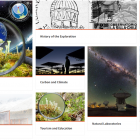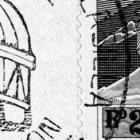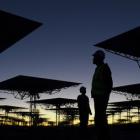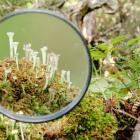Natural Laboratories
Natural Laboratories
Fifth chapter of Ricardo Rozzi et al.’s virtual exhibition, From Hand Lenses to Telescopes: Exploring the Microcosm and Macrocosm in Chile’s Biocultural Laboratories.
From Hand Lenses to Telescopes: Exploring the Microcosm and Macrocosm in Chile’s Biocultural Laboratories
Chile is a land drawn with the rhythm of nature itself. It is a natural laboratory that invites us to look up into the macrocosm and down into the microcosm. At both extremes of this long and narrow country, science activities have a major global impact. Today, over 50 percent of the world’s astronomical observations use the telescopes of the European Southern Observatory (ESO) and other institutions installed in the Atacama Desert in northern Chile. Complementarily, at its southern end Chile established the Cape Horn International Center for Global Change Studies and Biocultural Conservation (CHIC) to investigate the microcosms, from the largest organism, planet Earth, to the smallest ones. CHIC explores diverse forms of knowledge and values to understand and protect the biosphere in the context of global socio-environmental change. This virtual exhibition enhances the integration of the sciences, arts, and humanities through a novel partnership with the Rachel Carson Center for Environment and Society, inviting visitors to be enchanted across the multiple scales of the cosmos.
About the ExhibitionAbout the author
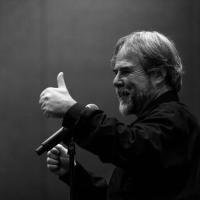
Cape Horn International Center for Global Change Studies and Biocultural Conservation, Chile
Show moreRicardo Rozzi is a Chilean ecologist and philosopher. Rozzi is a professor at the University of North Texas in the United States and at the University of Magallanes in Chile, where he is director of the Cape Horn International Center (CHIC). He has coined three interrelated terms: “biocultural conservation,” “biocultural homogenization,” and “biocultural ethics.” The latter values the vital links between the lifestyles of coinhabitants who share a common habitat. He led the establishment of the UNESCO Cape Horn Biosphere Reserve (2005) and the Diego Ramírez Islands - Drake Passage Marine Park (2019). He also first introduced the “field environmental philosophy” methodology for biocultural education, generating innovations in special-interest tourism themes and activities, such as “Ecotourism with a Hand Lens.”
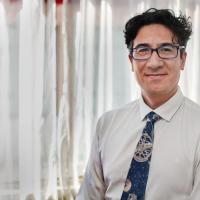
European Southern Observatory
Show moreLuis Chavarría holds a BS and a PhD in science with a major in astronomy from the University of Chile. He carried out his doctoral-thesis research at the Harvard-Smithsonian Center for Astrophysics and has done postdoctoral studies in Chile, France, and Spain, focusing on projects related to the star-formation process. In 2013 he joined the National Agency for Research and Development (ANID) as support astronomer and Chilean coordinator for the APEX (Atacama Pathfinder Experiment) telescope. In 2016 he became the director of the Astronomy Program, coordinating strategies to strengthen international collaboration and support the immense and growing scientific infrastructure installed in Chile to the benefit of the local scientific community. In 2021 he joined the European Southern Observatory (ESO) as the ESO representative in Chile. He became the first Chilean citizen to fill this position in the 60 years of ESO.


